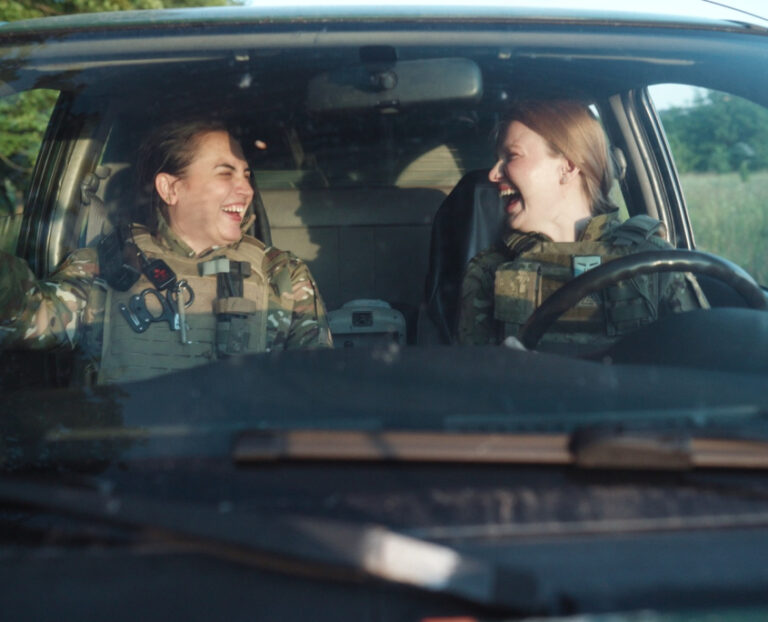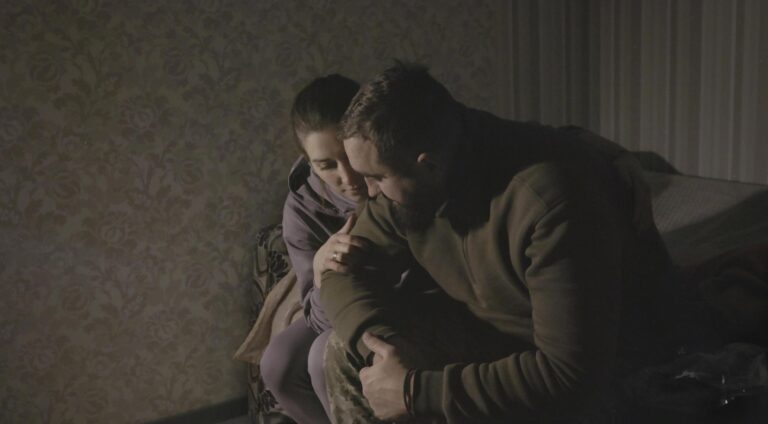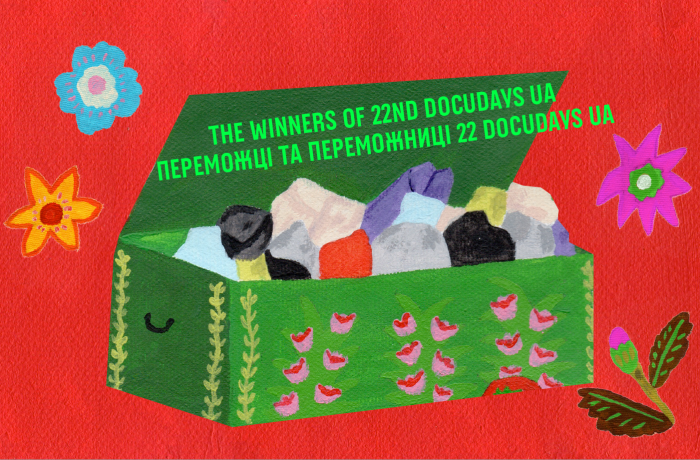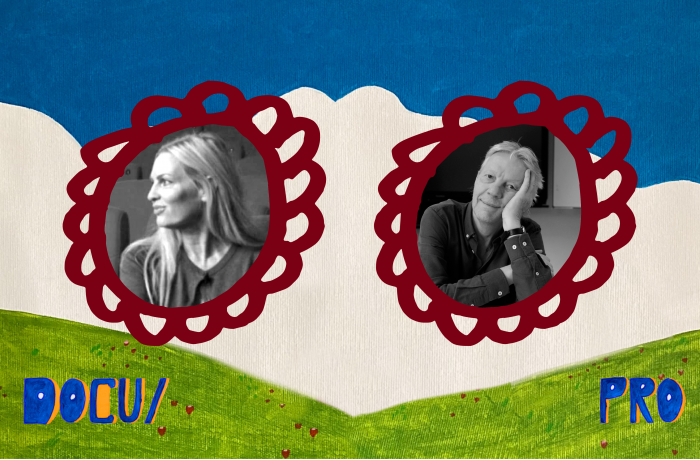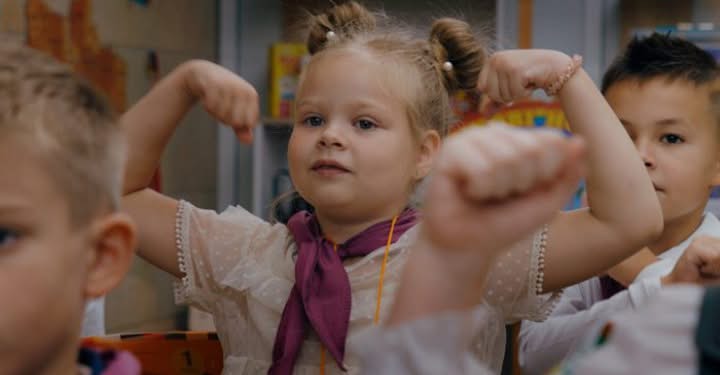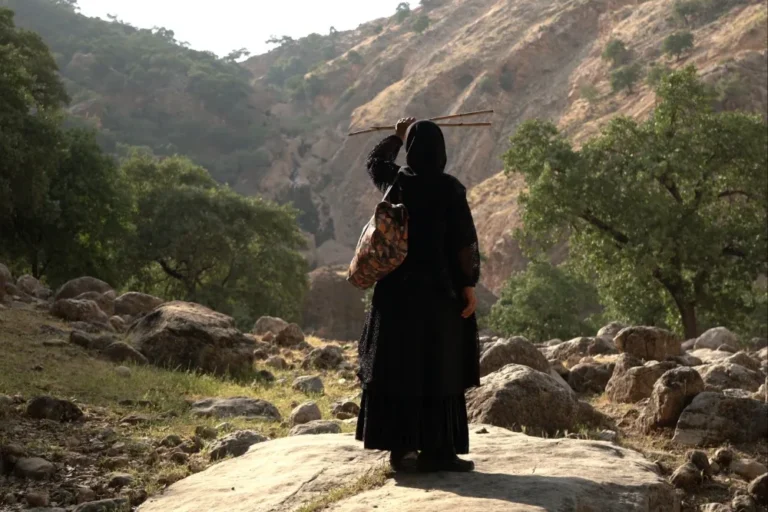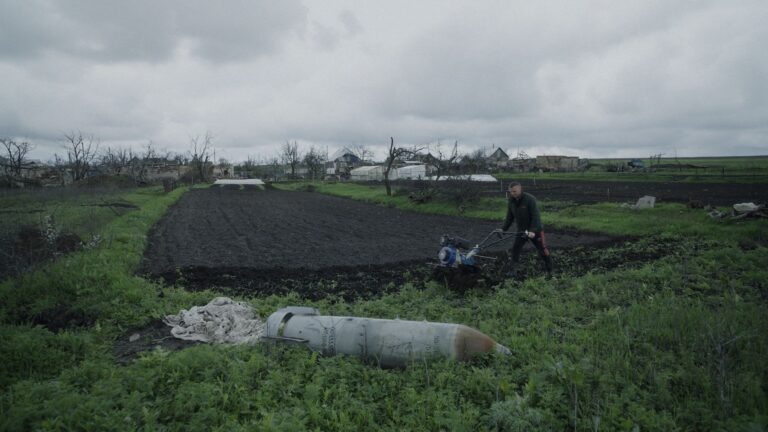


Eva Stefani: Bull’s Heart
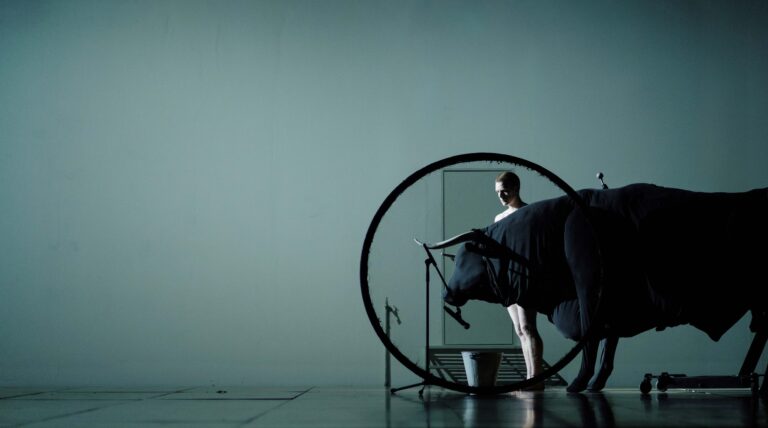
I took this from the website of the producer Onassis Culture to have a precise content description of the film:
Filmmaker Eva Stefani follows the preparations behind Transverse Orientation and its tour across theatrical stages in Europe, observing from a close distance Dimitris Papaioannou and his collaborators in their effort to give shape and breathe life into the work. For two years, her camera captured scenes from the rehearsals at the Onassis Stegi during the pandemic, as well as performances in Paris, London, Vilnius, and other international destinations, leading to the last show in San Francisco. The central question that runs through the documentary is “Why do we do what we do?” elevating art as a means of resisting the futility of things and a way to reapply meaning to our own lives.
All right, this is – the last sentence – how the producer presents the cinematic interpretation that Eva Stefani so competent conveys, the work of the charismatic Dimitris Papaioannou, a choreographer of world class, who the director has known since he and she were young, which is probably, why she was asked to make a film about him. Well, and because Eva Stefani is, my view, the best documentary director in her country. Maybe Papaioannou shares my view and asked for her to do the job.
A commissioned work on the process of creation it is, fascinating from start till end, visually stunning, also for someone like me, who knows nothing about dance performances, in this case with references to Greek mythology, but also a portrait of man, who with his art goes for the Transverse Orientation, i.e., I understand, means looking for light, i.e. looking for a sense, a meaning of it all. With Eva Stefani’s adding her predominant theme Love. Her voice, it’s also a film about the director.
Love. Here with extraordinary clearly erotic close ups of scenes from the performance, that has a male ensemble plus the formidable Pina Bausch dancer Breanna O’Mara, whose beauty is caught by Eva Stefani’s camera; The Birth of Venus of Botticelli is just one of the references. But Stefani also includes memories of Papaioannou, who talks about his first falling in love with Peter on the island of Mykonos. They were together for some days, 19 years old was Dimitris, German Peter some years older, and after the few days he left and have never seen each other again. And Stefani lets in Papaioannou’s worry about the health of his father, who has cancer in a final stage. Phone call after phone call.
Eva Stefani calls herself a direct cinema documentarian and indeed you are as a viewer generously invited to follow the preparation of the performance during and after the covid years until the premiere at the Chatelet Theatre in Paris. During the rehearsals on stage, behind the stage, in their hugging and in scenes, where the director gives instructions, inspires the ensemble, in a way that reminds me of another great coach from a different artistic performative genre, football. I am thinking of Pep Guardiola.
The Bull represents of course power, strength, masculinity. The ensemble fights it and in the rehearsals Papaioannou shows a dancer how to decapitate the animal, with gestures and sound – whereas Eva Stefani in one of her many small comments/dialogues with Dimitris Papaioannou teases him saying that she is getting more interested in the bull than in him.
Yes, there is a tone of humor in the film, it is not high brow or elitist, it is also a film that shows how nice the dancers are to each other, the spirit of an ensemble, which can be difficult to keep. Papaioannou, in a scene, stresses that they have to repeat and repeat the movements, the dynamic, the rythm, unbelievable that they are able to, also when you think about the empty theatre rehearsals during the covid period.
Papaioannou paints with the bodies in the performance, Stefani with her camera. Does she ever get to the Bull’s Heart. If you choose to see this as the meaning of it all, of course not, the transverse orientation is about the search for light like the insects, and the film does not want to give any answers, documentaries raise questions, they never give answers. Stefani breaks up the straight forward chronological structure by dividing scenes into dreams, a clever choice that adds spirituality to her direct cinema approach. Convincing.
If she gets to the Bull’s Heart, if she provides order in chaos… I don’t know and I don’t need to know, I let myself enjoy, what I see and what I hear.
Eva Stefani gets the final words with notes taken from the website of the producer:
The documentary begins by capturing a group of dancers and technicians who find themselves in the weird position of having to work on a show that might never take place. At the same time, it serves as a portrait of an artist who possesses the ability to instill inspiration in his collaborators and captivate his audience with works imbued with ache, emotion, and beauty. We shot the documentary with a very tight crew, just two or three people, using the direct cinema approach to remain as unobtrusive as possible. We experimented extensively with the image itself, particularly out-of-focus shots, which we believed accurately captured the eerie vibe we felt while watching the performance. My objective with this documentary was to depict, to some degree, what it’s like to watch “Transverse Orientation,” its sensuality, darkness, and riddle. Beyond that, to leave subtle cracks that offer a glimpse into the intricate psyche of a truly brilliant artist.
Photo: Julian Mommert.
Greece, 2025, 78 mins.
